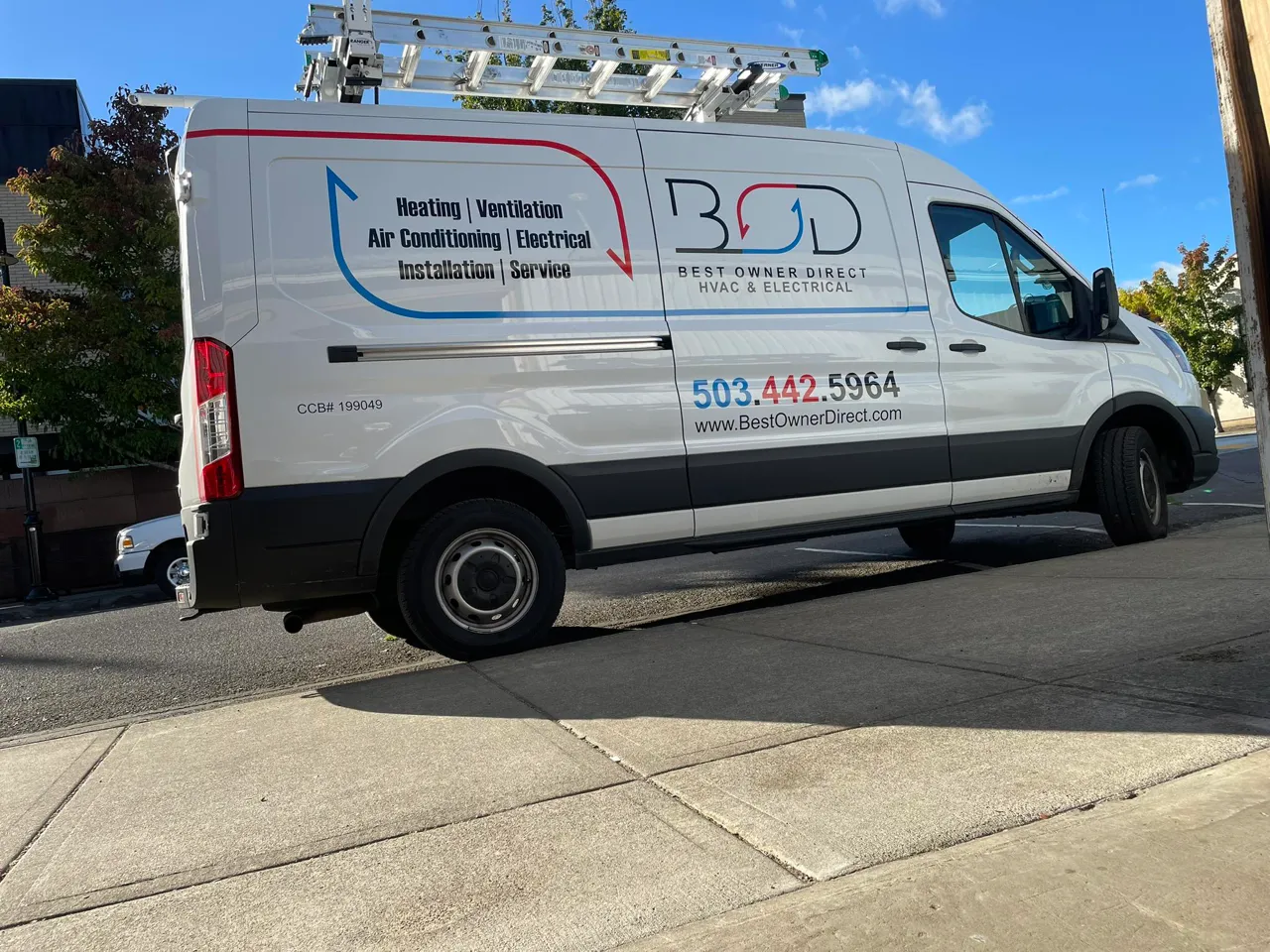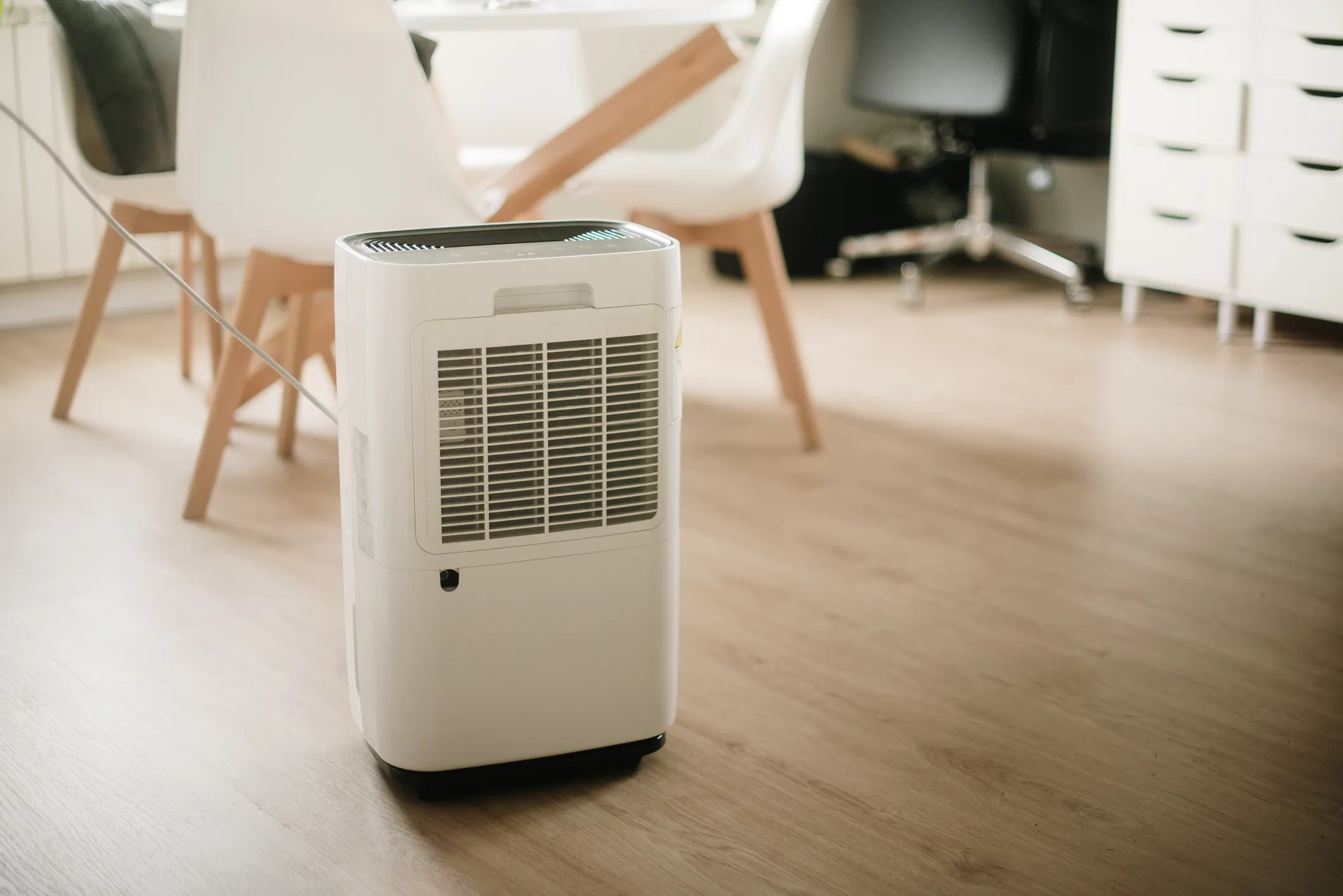Menu
Indoor Air Quality in Tigard, OR
Improve your indoor air quality in Tigard, OR with Best Owner Direct HVAC & Electrical. Breathe easier with expert home air solutions—book a consultation!

Keeping indoor air clean in Tigard homes and businesses is more than comfort - it is health and long-term system performance. Pacific Northwest weather, seasonal pollen, and periodic wildfire smoke create unique air quality challenges here in Tigard, OR. Best Owner Direct HVAC & Electrical professional indoor air quality (IAQ) services identify hidden problems, reduce contaminants, and recommend targeted solutions like filtration upgrades, humidity control, UV sterilization, and duct cleaning to make indoor spaces safer and more comfortable.
Common Indoor Air Quality Issues in Tigard
- Seasonal pollen and outdoor allergens that enter homes through doors, windows, and ventilation.
- Higher indoor humidity in winter and spring leading to mold and dust mite growth.
- Wildfire smoke infiltration during dry summer months, depositing fine particles indoors.
- Pet dander and household dust accumulation in ductwork and on surfaces.
- Volatile organic compounds (VOCs) from paints, cleaning products, and recent renovations.
- Combustion byproducts and carbon monoxide risks from poorly maintained appliances.
- Leaky or dirty ducts that circulate contaminants and reduce HVAC efficiency.
Understanding these local drivers helps prioritize testing and solutions so that interventions address the most relevant risks for Tigard residents.

What our IAQ Service Includes
We take a diagnostic-first approach to create solutions that match your building, occupant needs, and the Tigard climate.
Air testing and assessment
- Particle counts for PM2.5 and PM10 to evaluate smoke and fine particulate levels.
- Mold inspection and moisture assessment in crawlspaces, basements, and attics.
- VOC screening to identify offgassing sources after remodeling or from household products.
- Carbon monoxide and combustion appliance safety checks.
- Humidity monitoring and airflow evaluation to detect stagnant or poorly ventilated zones.
Filtration system evaluation and recommendations
- Guidance on MERV-rated HVAC filters: typical residential systems accommodate MERV 8-11 for dust and pollen reduction; MERV 13 is recommended where smoke exposure or allergy control is a priority.
- Advice on HEPA filtration: true HEPA captures 99.97 percent of particles down to 0.3 microns. Whole-house HEPA retrofits require HVAC compatibility checks; portable HEPA units are effective room-level supplements.
- Recommendations that balance filtration efficiency with HVAC system airflow and energy use.
Humidification and dehumidification
- Whole-home humidifiers to maintain comfortable indoor humidity in dry winter months and protect woodwork and respiratory comfort.
- Whole-home or targeted dehumidifiers to control excess moisture in basements and bathrooms, preventing mold growth common in Tigard’s wet seasons.
- Humidity setpoint guidance (generally 30 to 50 percent depending on season) and thermostat integration options.
UV and advanced air purification technologies
- UV germicidal lights positioned near the HVAC coil to reduce microbial growth and improve system hygiene.
- Advanced oxidation and electronic air cleaners where appropriate to reduce VOCs and odors.
- Assessment of benefits and limitations of each technology for residential and small commercial settings.
Duct cleaning and duct sealing
- Professional duct cleaning to remove dust, pet dander, mold spores, and accumulated debris lodged in ducts and plenums.
- Duct sealing to eliminate air leaks that draw in contaminants from crawlspaces and attics while improving HVAC efficiency and reducing energy waste.
- Targeted repairs for badly damaged ductwork and recommendations for insulation in unconditioned areas.
How the IAQ Process Works
- Initial inspection and testing: A qualified technician performs visual inspections and runs the agreed tests to quantify contaminants, humidity levels, and airflow issues.
- Findings and tailored plan: You receive a clear summary of issues found, prioritized recommendations (for example, filter upgrades, duct work, or a dehumidifier), and an explanation of health and performance benefits.
- Implementation: Technicians install or upgrade filtration, humidification/dehumidification systems, UV or purification units, and perform duct cleaning/sealing as needed.
- Verification and follow-up: Post-service testing or monitoring confirms improvement and ensures system settings are optimized for local seasonal changes.
Choosing the Right Filtration and Equipment
- Use MERV 8-11 for basic dust and pollen control with minimal impact on HVAC performance.
- Choose MERV 13 or whole-house HEPA solutions when wildfire smoke or severe allergies are a primary concern; ensure your system can handle the increased resistance or opt for standalone HEPA units.
- UV systems are effective at controlling biological growth on coils and in drain pans, improving both IAQ and HVAC efficiency.
- For homes with moisture issues, pair dehumidification with source control and ventilation improvements.
Health and Comfort Benefits
- Reduced allergy and asthma triggers from lower pollen, dust mite, and pet dander exposure.
- Lower risk of mold-related health problems by controlling humidity and removing spores.
- Clearer indoor air during wildfire season through appropriate filtration and sealing.
- Improved sleep and overall well-being when VOCs and odors are minimized.
- Longer HVAC equipment life and lower energy usage through clean ducts and properly sized filtration.
Practical Maintenance and Seasonal Advice for Tigard Home
- Replace or inspect HVAC filters every 1 to 3 months; increase frequency during wildfire season and high-pollen months.
- Monitor indoor humidity and keep it near 30-50 percent to reduce mold and dust mite activity.
- Run bathroom and kitchen exhaust fans during and after use to remove moisture and pollutants.
- Keep outdoor vents and intake locations clear of leaves and debris, especially during fall.
- Schedule annual HVAC tune-ups and duct inspections before winter to ensure combustion safety and peak performance.
Improving indoor air quality in Tigard homes and businesses is an investment in health, comfort, and energy efficiency. A targeted, diagnostic-first IAQ plan combines testing, appropriate filtration, humidity control, purification technologies, and duct care to deliver measurable results tailored to local conditions and occupant needs.
Protect Your Health with Professional IAQ Services in Tigard
Your family deserves clean, healthy air—especially in Tigard’s damp climate where mold, pollen, and wildfire smoke are common. Best Owner Direct HVAC & Electrical provides comprehensive indoor air quality solutions in Tigard, OR, including HEPA filtration, humidity control, UV sterilization, and duct cleaning. Our tailored approach reduces contaminants, protects your HVAC system, and enhances comfort. Don’t let poor air quality compromise your health—contact us today for expert IAQ service.


